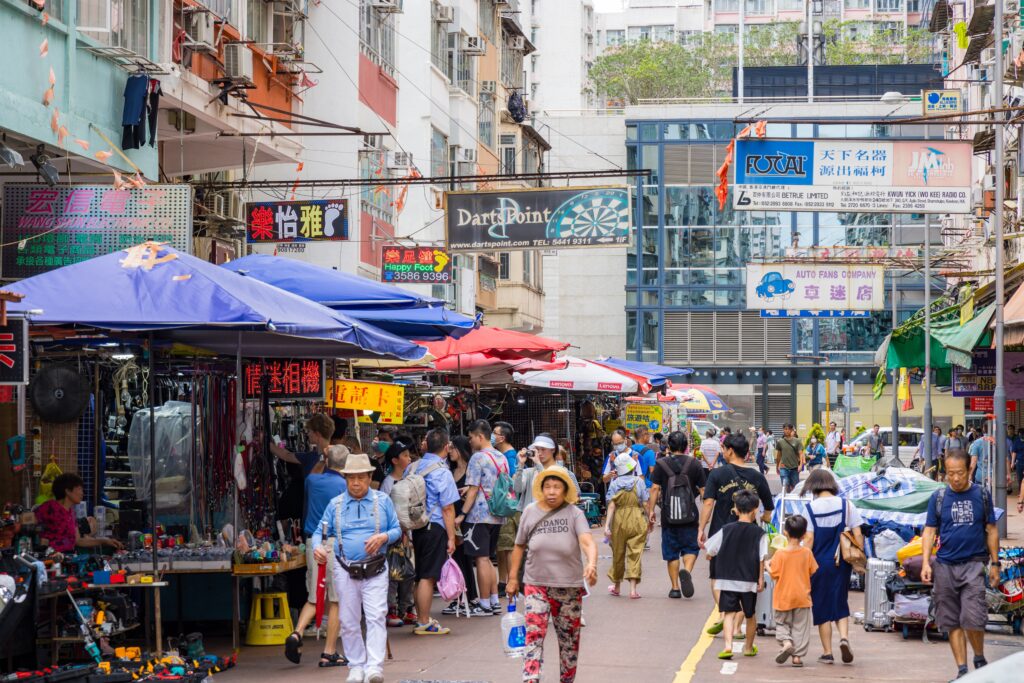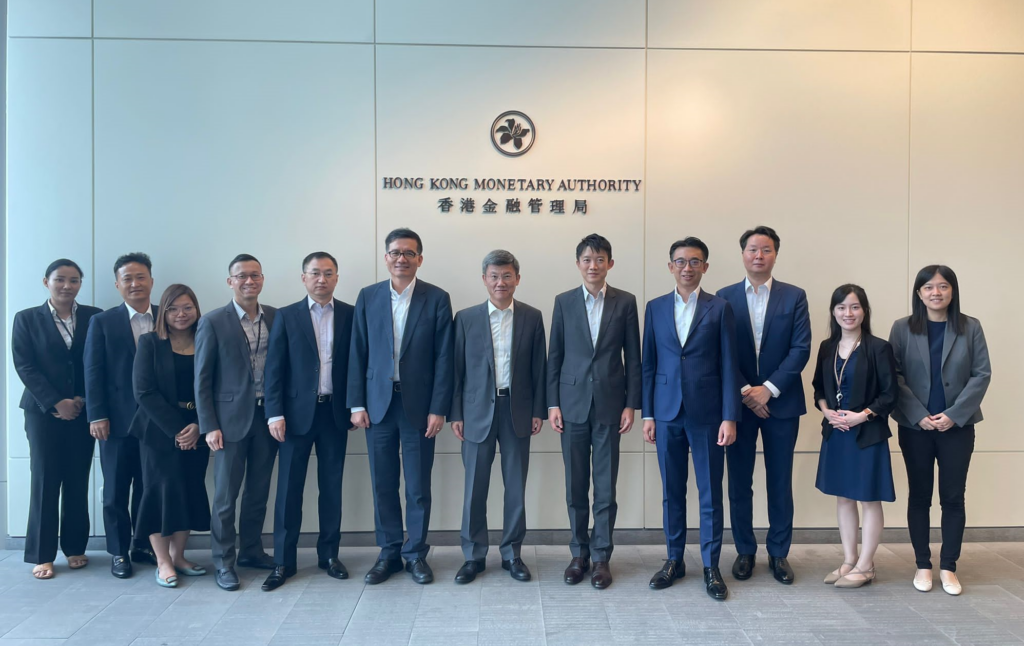
Image: leungchopan / Shutterstock.com
SINGAPORE, September 18, 2023 – The Hong Kong economy is poised to rebound strongly this year, before moderating toward trend growth next year. With growing external uncertainties and geopolitical risks, it would be important for Hong Kong to further diversify its economic base, widen its global reach, and continue to address structural challenges such as aging population, housing supply, and social inclusion.
This preliminary assessment was made by the ASEAN+3 Macroeconomic Research Office (AMRO) after its Annual Consultation Visit to Hong Kong from August 23 to September 1, 2023.
The AMRO team was led by Lead Economist Jae Young Lee. AMRO Director Kouqing Li and Chief Economist Hoe Ee Khor participated in the policy meetings. The discussions focused on Hong Kong’s recent macroeconomic development, policy initiatives to support growth, key risks and vulnerabilities, and efforts to strengthen Hong Kong’s long-term resilience.
Economic development and outlook
“Hong Kong’s economy is expected to rebound by 4.7 percent in 2023, before moderating to 3.3 percent in 2024,” said Dr. Lee. “The economy and its financial system have remained resilient, underpinned by large fiscal and foreign exchange reserves as well as a strong and well capitalized banking system.”
Hong Kong’s economy contracted by 3.5 percent in 2022 due to the strict mobility measures to contain the fifth wave of the COVID-19 pandemic and the decline in external demand amid a down cycle in global trade. With the lifting of containment measures and shift towards endemicity in Hong Kong and Mainland China at the end of last year, the economy rebounded strongly in the first half of 2023, primarily driven by robust domestic consumption and a surge in inbound tourism. Economic growth in the remainder of 2023 and in 2024 will be boosted by further normalization of cross-border travel and tourism and the provision of targeted fiscal support. Inflation may face some upward pressures, reflecting the economic recovery and the tightening labor market, but should remain moderate for the rest of 2023 and 2024.
Risks and vulnerabilities
While Hong Kong’s near-term growth outlook has improved, uncertainties remain high and downside risks are pronounced. A protracted global trade down cycle is a significant concern, given the economy’s heavy connections with the global economy. A higher-for-longer US policy rate could lead to tighter-for-longer domestic financial conditions in Hong Kong, dampening its investment and consumption.
The outlook for Hong Kong’s property market appears challenging, which could dampen the sentiment of households and firms. A faltering economic recovery in Mainland China would also weigh on Hong Kong’s economic growth.
In the medium term, Hong Kong’s vulnerability to an escalation of US-China tensions and a broadened geoeconomic fragmentation is a major risk.
Policy responses
As the economic recovery is still at an early stage, it is appropriate to withdraw the pandemic induced fiscal stimulus policies in a gradual and measured manner. The smaller fiscal stimulus budgeted for FY2023 is expected to continue to support the recovery. As the recovery has been uneven across sectors, it would be appropriate for the fiscal support measures to focus on vulnerable sectors and households. The government should seek to rebuild fiscal reserves when the economy is fully recovered.
AMRO supports the authorities’ plan to phase out the financial relief measures with the normalization of economic activities. The planned termination of the financial relief schemes is not expected to have a significant negative impact on banks’ asset quality, as the ongoing recovery of the economy should help strengthen the balance sheets of the borrowers.
Addressing near-term supply-side constraints is essential to bolstering a fuller economic recovery. To ensure a full recovery in sectors such as tourism and transportation, it is crucial to resolve supply side issues in human resources and to continue providing support to firms. The policy to facilitate labor importation and attract skilled talents can significantly contribute to sustaining economic growth and strengthening Hong Kong’s position as an international financial and business hub.
The Linked Exchange Rate System remains an effective framework in maintaining Hong Kong’s financial and external stability. This policy regime has proven resilient through multiple episodes of heightened stresses over the past decades.
AMRO supports the government’s direction of continuously enhancing Hong Kong’s pivotal role as a “super-connector” between Mainland China and the rest of the world as well as further strengthening financial integration with Mainland China through initiatives like the Connect Schemes and offshore renminbi business, including prioritizing the enhancement of integration within the Guangdong–Hong Kong–Macao Greater Bay Area. Shifting international political dynamics offer opportunities for Hong Kong to expand its economic ties beyond traditional markets. The government’s effort to bolster trade, investment, finance, and technology links with regions like the Middle East and ASEAN is a welcome step toward further diversifying Hong Kong’s global reach.
The mission team would like to express its deep appreciation to the Hong Kong Monetary Authority (HKMA) for its excellent arrangements. The team would also like to thank HKMA and other participating organizations for their thoughtful comments and candid views.
About AMRO
The ASEAN+3 Macroeconomic Research Office (AMRO) is an international organization established to contribute toward securing macroeconomic and financial stability of the ASEAN+3 region, comprising 10 members of the Association of Southeast Asian Nations (ASEAN) and China; Hong Kong, China; Japan; and Korea. AMRO’s mandate is to conduct macroeconomic surveillance, support regional financial arrangements, and provide technical assistance to the members. In addition, AMRO also serves as a regional knowledge hub and provides support to ASEAN+3 financial cooperation.

AMRO Director Kouqing Li and the AMRO team met with HKMA Executive Director (External) Kenneth Hui and HKMA officials.
